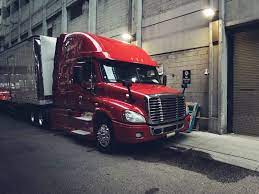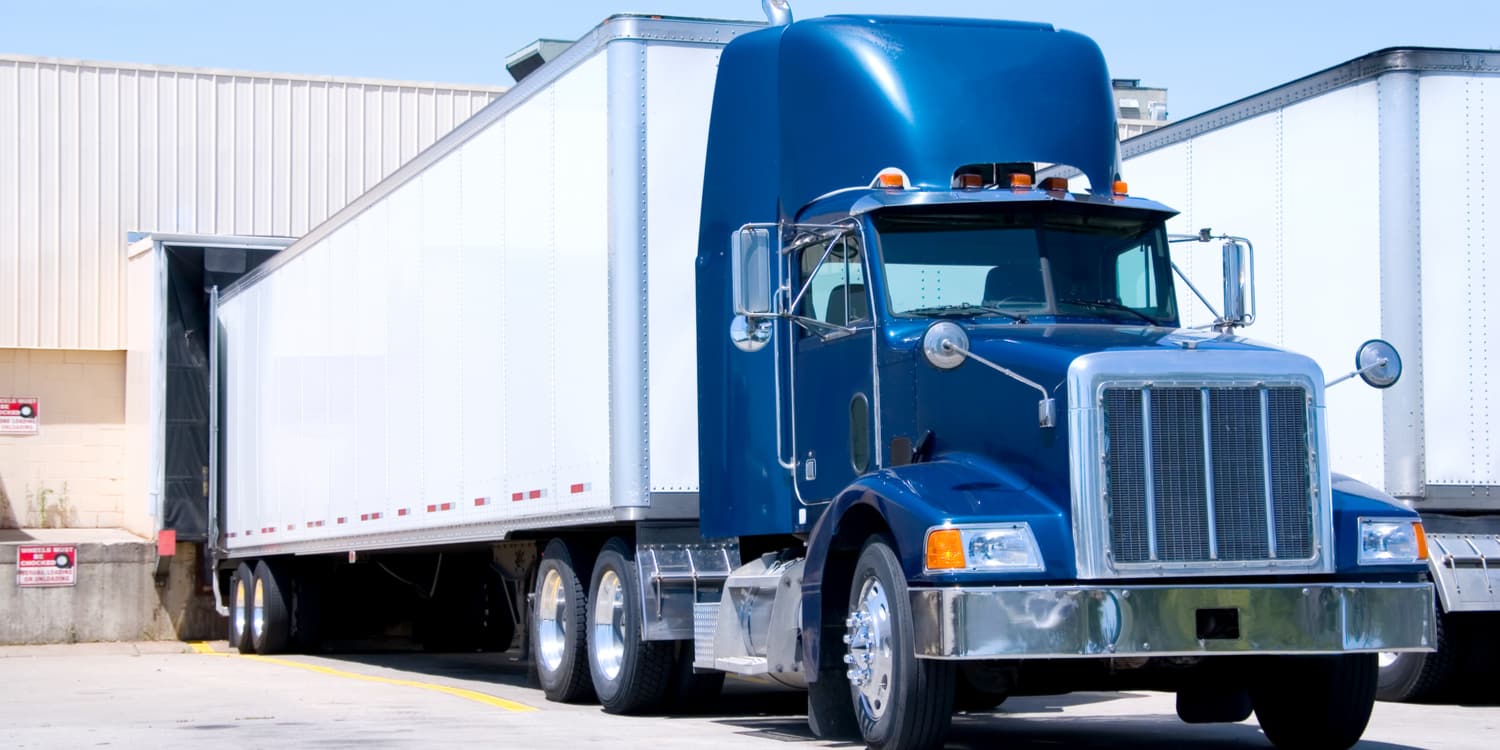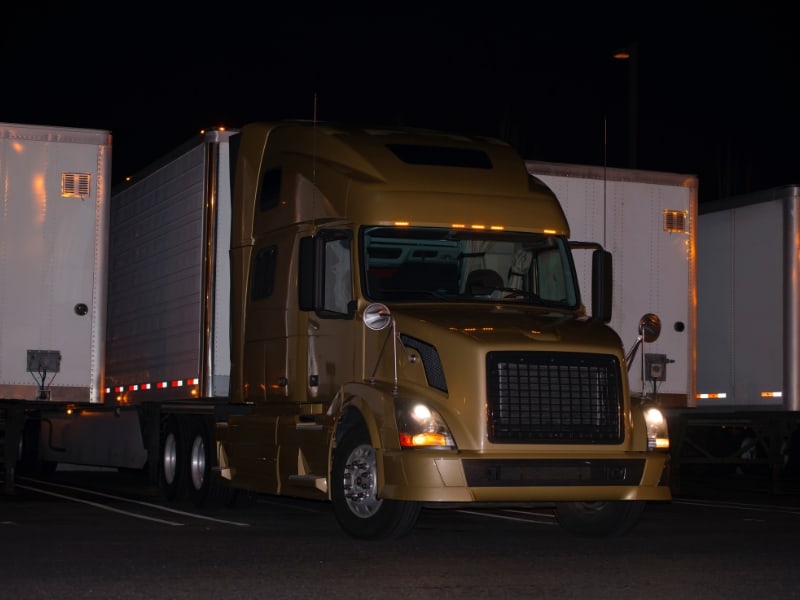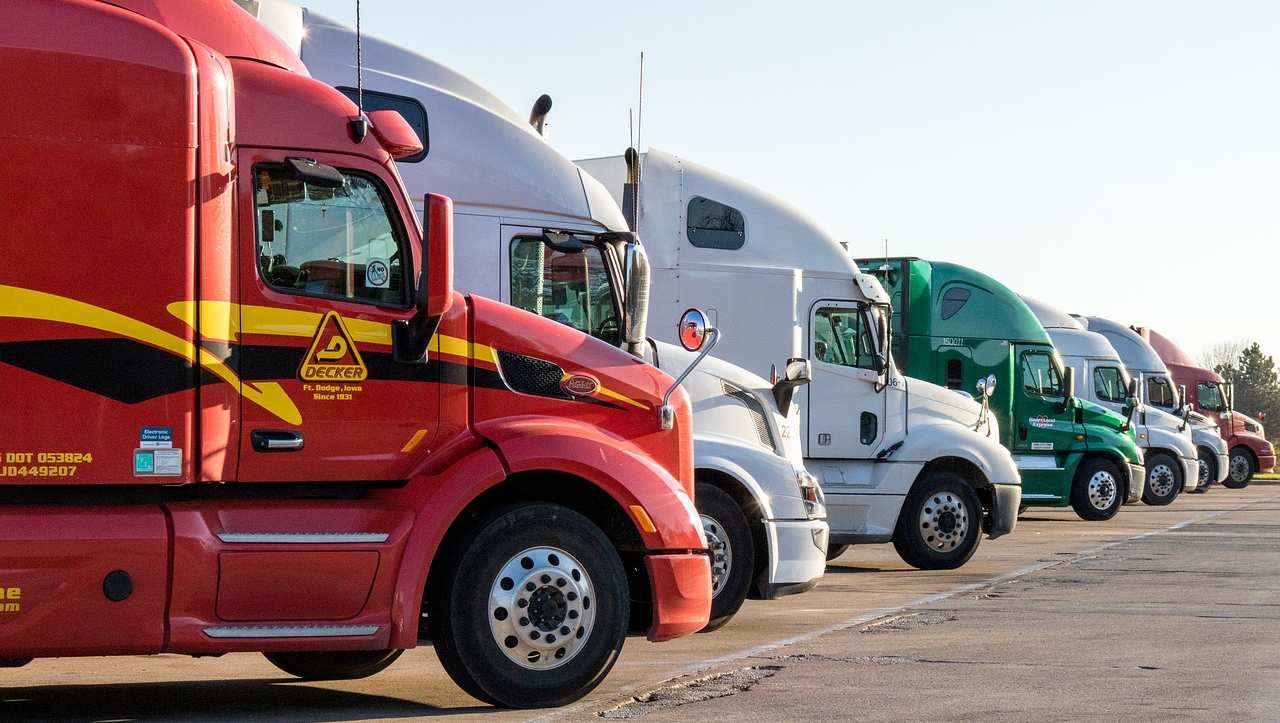Blogs Details
.jpeg)
Drop Trailers – Everything You Need to Know
08-07-2023 | | 0 Comments
Carriers and owner-operators are on the other end of the drop trailer equation. For them, the success of drop trailer services hinges on a variety of factors. Below, we outline the best practices and considerations essential for the smooth operation and management of these trailers:
1. Inventory Management: Keeping track of your trailers is paramount. This means not just knowing where they are, but their condition as well. Employing a trailer tracking system can greatly aid in this, especially if you have a sizeable fleet.
2. Opt for Proper Insurance: Given that trailers might be left unsupervised at different facilities, ensuring they're properly insured against theft, damage, or vandalism is crucial.
3. Efficient Communication with Shippers: Establishing open lines of communication with shippers ensures that the pick-up and drop-off processes are as seamless as possible. Discuss and pre-determine schedules, responsibilities, and potential fees or penalties for any delays or issues.
4. Equipment Maintenance: Regularly check and maintain your trailers. Since they might be stationed at a facility for an extended period, ensuring they're in peak condition will reduce the risk of breakdowns or damages.
5. Understand the Agreement: As a carrier, always clarify the terms of the agreement with the shipper. Understand your responsibilities, especially regarding the time frame for picking up a loaded or unloaded trailer. Penalties for delays can eat into your profits, so having a clear understanding can save you money and potential disputes.
6. Ensure Security Measures: If your trailer is storing valuable cargo, it might be a target for theft. Implementing security measures such as locks, seals, and even trailer alarms can offer added peace of mind.
Drop trailers have reshaped the trucking landscape, offering flexibility and efficiency to both shippers and carriers. While the system has its distinct advantages, like streamlined operations and better Hours of Service compliance, it's crucial for both parties to understand their roles and responsibilities in the process.
For shippers and receivers, the key lies in selecting the right carrier, clarifying terms, and ensuring their facilities can accommodate and protect the trailers. For carriers and owner-operators, regular maintenance, clear communication, and understanding agreements can go a long way in making drop trailer services profitable and efficient.
In the ever-evolving logistics world, drop trailers have carved a niche for themselves, offering solutions that benefit all parties involved. The key is managing the process effectively to reap the benefits fully.
Increased Flexibility and Efficiency
Drop trailer services afford both shippers and carriers the luxury of flexibility. This is crucial, especially in an industry where timeliness is of the essence. Shippers can load or unload trailers according to their schedules without the pressure of live load time restrictions. For carriers, this means the ability to optimize their routes and schedules, potentially accommodating more jobs in a day.
Safety Improvements
With reduced bobtailing and better route scheduling, the safety of both the drivers and the cargo is enhanced. Fewer movements of trucks within facilities mean fewer chances of workplace accidents, while optimized routes lead to less fatigued drivers on the roads.
Optimize Your Route
Optimizing route scheduling is a crucial aspect of trucking operations. Driving a truck without a trailer, known as bobtailing, not only reduces efficiency but also poses increased safety risks on the road. Bobtailing can result in unstable vehicle dynamics, and given that the truck isn’t generating revenue while burning fuel, it directly impacts a trucker's bottom line. The solution lies in effective scheduling, ensuring that after dropping a trailer, there’s another nearby to pick up, reducing time and fuel wastage.
Furthermore, adapting to drop-and-hook practices can further streamline operations. By understanding shippers' and consignees' turnaround times, carriers can pre-plan efficient routes. If shipments are frequent, truckers can continuously cycle between dropping and picking up trailers, ensuring the truck is seldom empty. This continuous flow not only benefits the carrier in fuel savings and increased efficiency but can also lead to cost-saving opportunities for shippers, creating a win-win situation.
Lastly, the strategic use of drop yards, which serve as storage points for empty trailers, can be invaluable. Especially for routes with multiple stops, having a nearby drop yard ensures that empty trailers are kept off primary facilities, reducing congestion and minimizing unnecessary miles driven. In essence, these practices, when employed judiciously, can transform trucking operations, maximizing efficiency and profitability.
Cost-Savings for Shippers
For shippers, while there might be a slightly increased cost for holding onto trailers longer, the efficiencies gained in the loading and unloading processes can offset these costs. This is particularly true in peak times or when labor is scarce.
Environmental Benefits
Every minute a truck idles during live loading or unloading, it emits pollutants into the atmosphere. With the reduction in these waiting times, the environmental footprint of the logistics industry can be reduced.
Improving Carrier and Shipper Relations
Drop trailer services often lead to improved relationships between carriers and shippers. When both parties can operate more on their own terms and schedules, tensions and disputes over delays or inefficiencies decrease.
Challenges of Drop Trailer Services
While the benefits are significant, there are challenges to consider as well:
Increased Capital Costs for Carriers
Carriers will need to invest in more trailers to allow for the flexibility drop trailer services require. These costs can be substantial, especially for smaller carriers or owner-operators.
Potential for Miscommunication
With trailers being decoupled from trucks and left at facilities, there is potential for communication breakdowns regarding pick-up times, locations, or even the contents of the trailer.
Security Concerns
Trailers that are left unsupervised could be vulnerable to theft or vandalism. This necessitates added security measures, which can be an added cost.
Drop trailer services represent a significant evolution in the trucking and logistics industry. The strategy, when managed effectively, can yield substantial benefits for carriers, shippers, and receivers alike. With the right planning, technology, and communication, the challenges can be navigated, ensuring that the system delivers on its promise of enhanced efficiency, reduced costs, and better working relationships. The increasing adoption of such services in the industry underscores its effectiveness and potential. As with any strategy, continuous evaluation and refinement are key to harnessing its full potential.
Leave a Comment
About Me
Recent Posts
-

-
Tractor Trailer Truck Parking Lot Layout Dimensions
-

-
Drop Trailer Program - What You Need to Know
-
.jpeg)
-
Drop and Hook Trucking - How Does It Work
-

-
Where Can I Park My Semi-Truck Overnight
-

-
Truck Overnight Parking: Guide, Locations, And Services
-

-
Truck Driver and Industry Challenges 2023
-

-
Top Factors Driving Truck Parking Demand
-

-
Truck Parking Benefits Communities
-

-
How Much Does It Cost to Park a Semi-Truck
-

-
Balanced Truck Parking Regulations
Comments
No comment found.